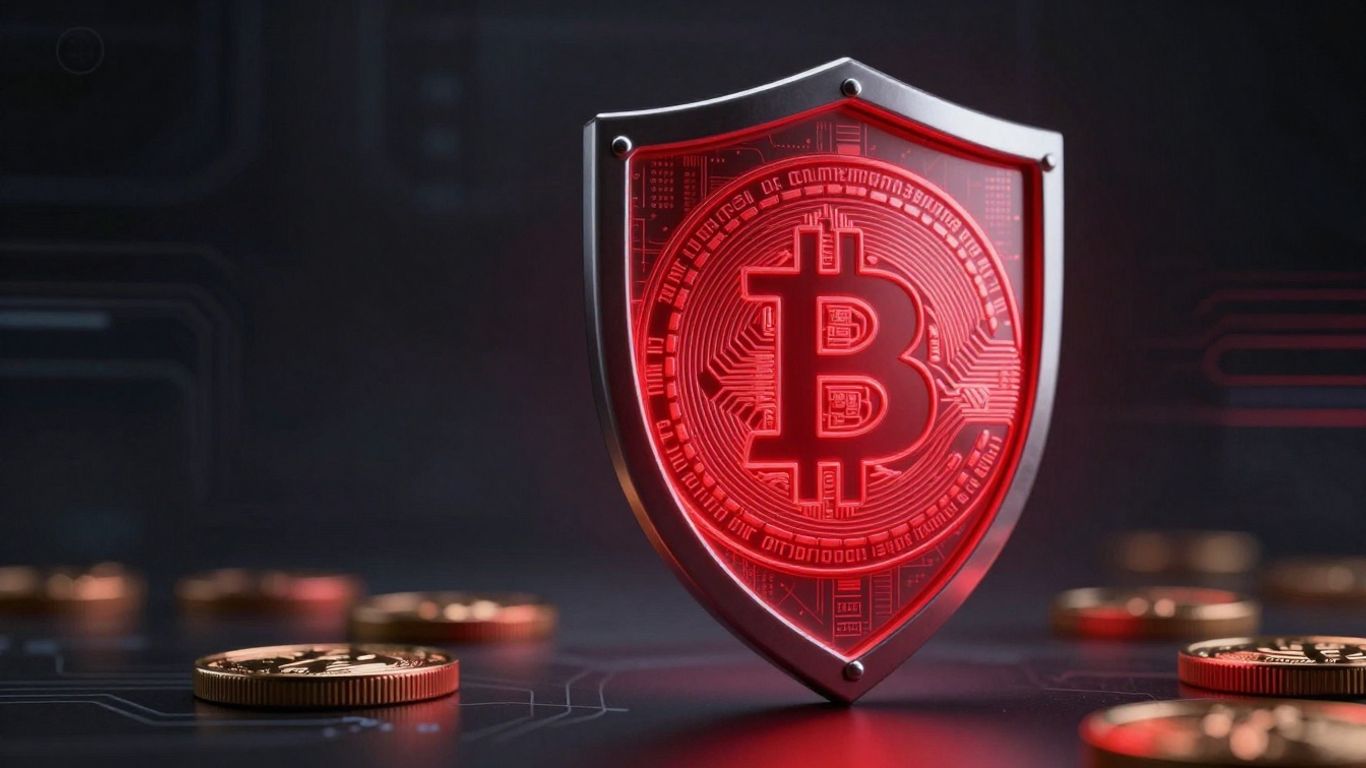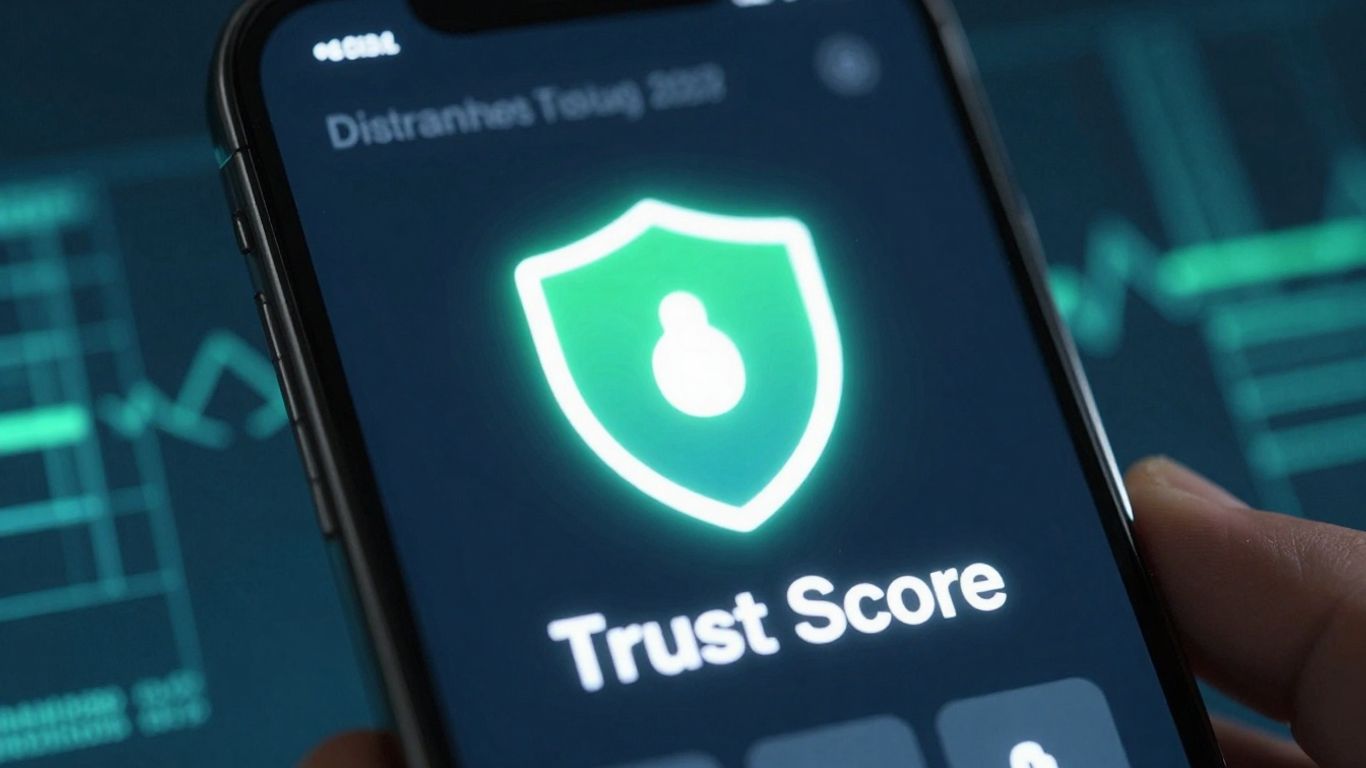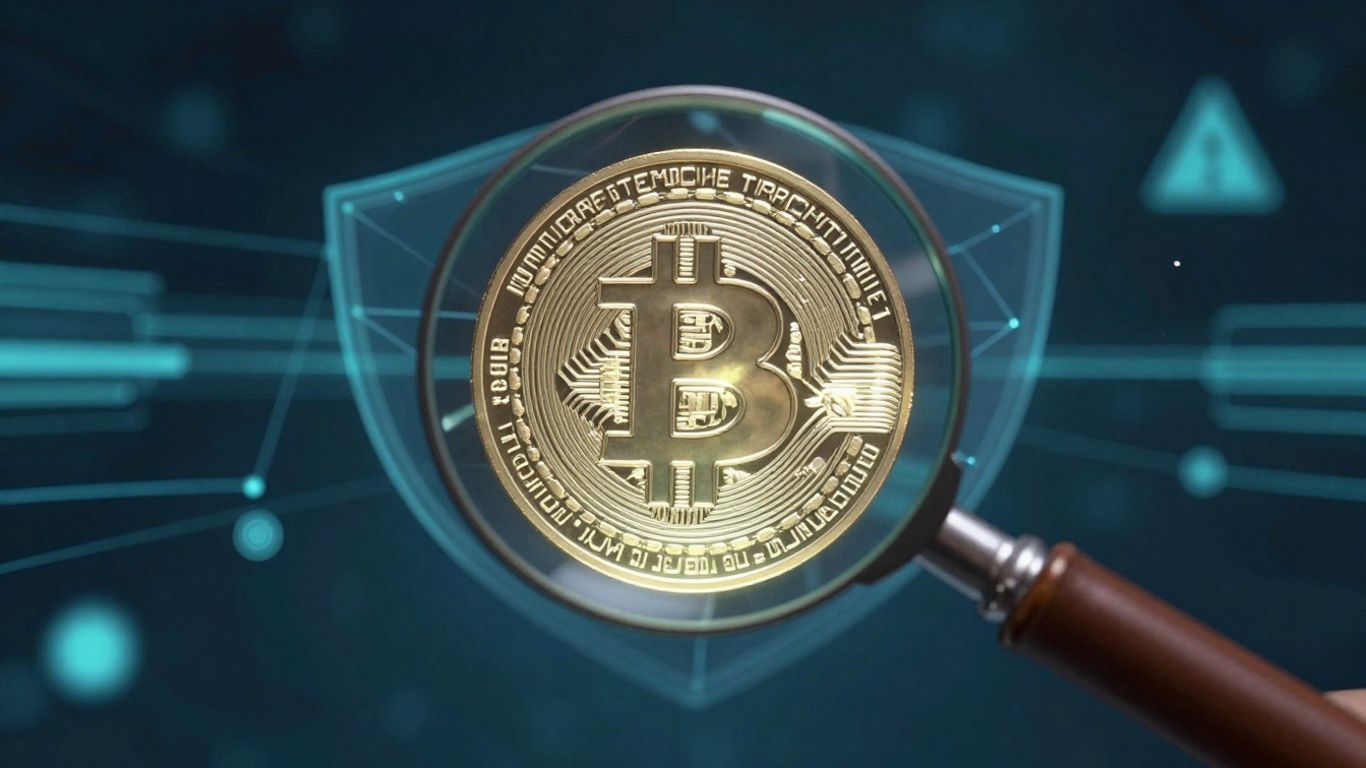[ newsletter ]
Stay ahead of Web3 threats—subscribe to our newsletter for the latest in blockchain security insights and updates.
Thank you! Your submission has been received!
Oops! Something went wrong. Please try again.
Find the crypto wallet best buy with our guide to web, mobile, and hardware options. Compare top choices like MetaMask, Ledger, and Trust Wallet.





So, you're looking to buy some cryptocurrency and need a place to keep it safe. It can feel like a lot to sort through, right? There are so many options out there, from apps on your phone to special hardware devices. Figuring out the crypto wallet best buy for your situation is key. This guide breaks down what you need to think about and looks at some popular choices to help you make a good decision.
Alright, so you're getting into crypto, which is pretty cool. But before you just grab the first wallet you see, let's talk about what you actually need. It's not a one-size-fits-all situation, you know? Think of it like picking a tool – you wouldn't use a hammer to screw in a bolt, right? Same idea here.
How often do you plan on moving your crypto around? If you're constantly buying, selling, or swapping, you'll want something quick and easy to access. A 'hot wallet,' which is connected to the internet, is usually good for this. They're often free and super convenient for day-to-day stuff. But if you're more of a 'buy and hold' person, maybe for years, you might not need that instant access. You might be okay with something a bit more secure that takes an extra step to get to.
This is a big one. Crypto can be a bit wild, and unfortunately, there are people out there looking to take advantage. Your wallet is basically your digital vault. You need to think about how it protects your private keys – those are the secret codes that give you access to your crypto. If someone gets those, they can take everything. Some wallets are better than others at keeping those keys safe. Things like multi-factor authentication, secure enclaves, and offline storage are all good signs. You really don't want to skimp on security.
Let's be real, crypto can be confusing enough without a wallet that looks like it was designed by a rocket scientist. If you're new to this, you probably want something straightforward. A clean layout, clear instructions, and simple buttons for sending and receiving are key. If you're going to be using your wallet with other apps, like for NFTs or decentralized finance (DeFi), you'll want to make sure it connects easily. Nobody wants to spend hours figuring out how to link their wallet to a new platform.
Here's a quick look at what to consider:
Choosing the right wallet from the start can save you a lot of headaches down the line. It's worth taking a bit of time to figure out what fits your crypto journey best.
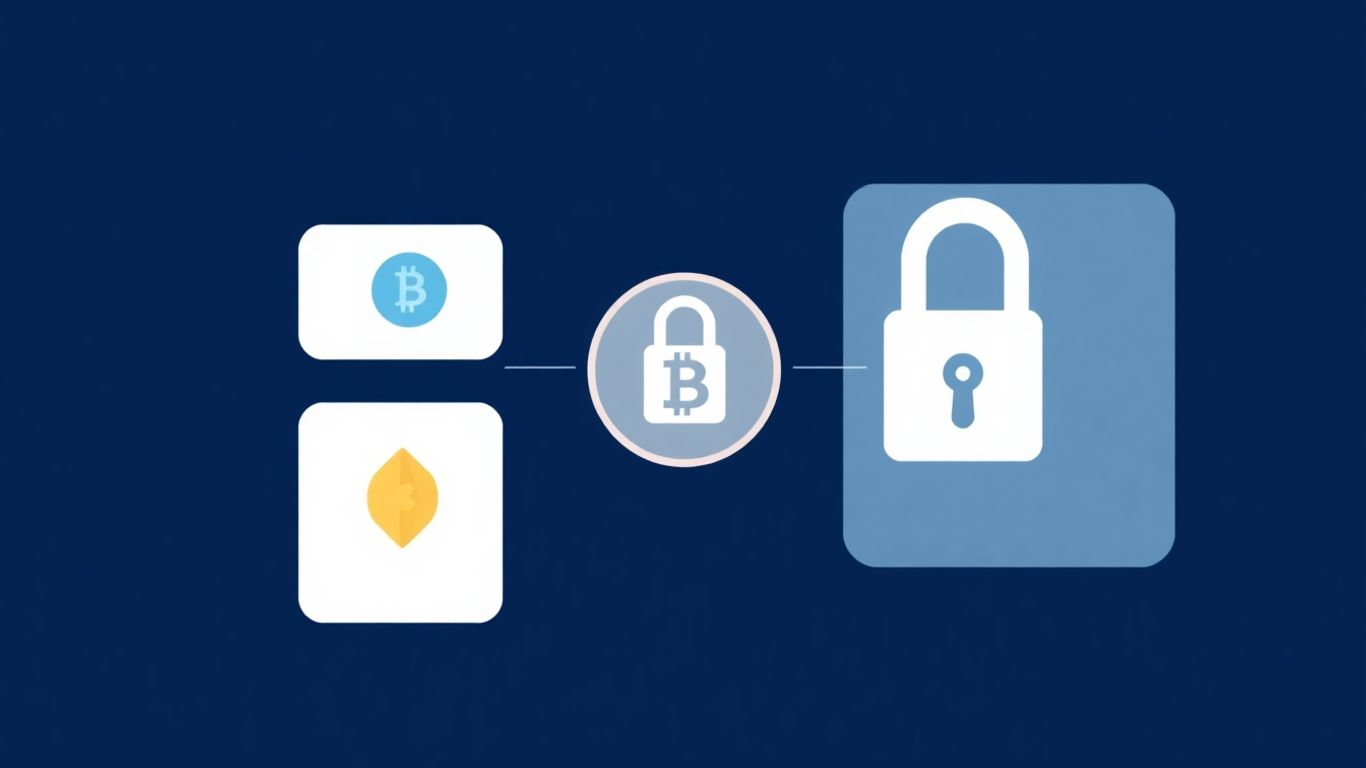
Web wallets are super handy because you can access them from pretty much any device with an internet connection. They're often the first stop for many people getting into crypto. But, like anything online, you want to pick one that's reliable and safe.
MetaMask is a big name in the web wallet space, especially if you're into decentralized applications (dApps) or the whole DeFi scene. It works as a browser extension and a mobile app, making it easy to connect to all sorts of blockchain-based services. You can manage your tokens, swap them, and interact with smart contracts without leaving the wallet interface.
While MetaMask is great for interacting with the Ethereum ecosystem, remember it's primarily focused there. If you're dealing with many different blockchains, you might need to look at other options or use multiple wallets.
Coinbase Wallet is a good choice if you're just starting out or if you're already a user of the Coinbase exchange. It's designed to be user-friendly and supports a pretty wide range of cryptocurrencies, not just those on the Ethereum network. It also has features like transaction previews and a dApp blocklist to help keep things secure.
Guarda is another web wallet that stands out because it supports a really large number of cryptocurrencies and tokens. If you're holding a diverse portfolio or want a single place to manage many different digital assets, Guarda could be a solid pick. It offers a clean interface and allows for crypto exchanges directly within the wallet.
When you're on the go, having a reliable mobile crypto wallet is super handy. These apps let you manage your digital assets right from your smartphone, making it easy to send, receive, and sometimes even trade your crypto wherever you are. It's like having your bank in your pocket, but for digital currencies.
Trust Wallet is a solid choice if you want a wallet that handles a lot of different coins and tokens. It's known for its clean design, which makes it pretty straightforward to use, even if you're not super tech-savvy. Plus, it has built-in features for viewing NFTs, which is a big plus if you're into that scene. They support a huge number of cryptocurrencies and blockchains, so you're likely to find support for whatever you're holding. Swapping tokens directly within the app is also a nice touch, saving you a step.
While it's great for general use, some users have noted that customizing gas fees can be a bit limited, and there isn't live customer support readily available.
If you appreciate a wallet that looks good and works well, Exodus is definitely worth a look. It's often praised for its beautiful interface, which makes managing a diverse portfolio feel less like a chore. Exodus supports assets across more than 50 blockchain networks, and you can even swap crypto directly within the app. It also plays nicely with hardware wallets like Trezor, adding an extra layer of security if you need it. It's a good all-around option for many users, especially those who like to keep track of many different types of digital assets. You can find out more about Exodus's features.
ZenGo stands out because it focuses heavily on making things simple, especially when it comes to security and recovery. They've done away with the usual seed phrases that can be easy to lose. Instead, they use a combination of facial recognition and a recovery key stored securely on your device. This makes it much easier for beginners to get started without the stress of managing complex recovery information. It's a great option if you're new to crypto and want a wallet that feels more like a modern app you're already used to. They are known as the best crypto wallet for beginners.
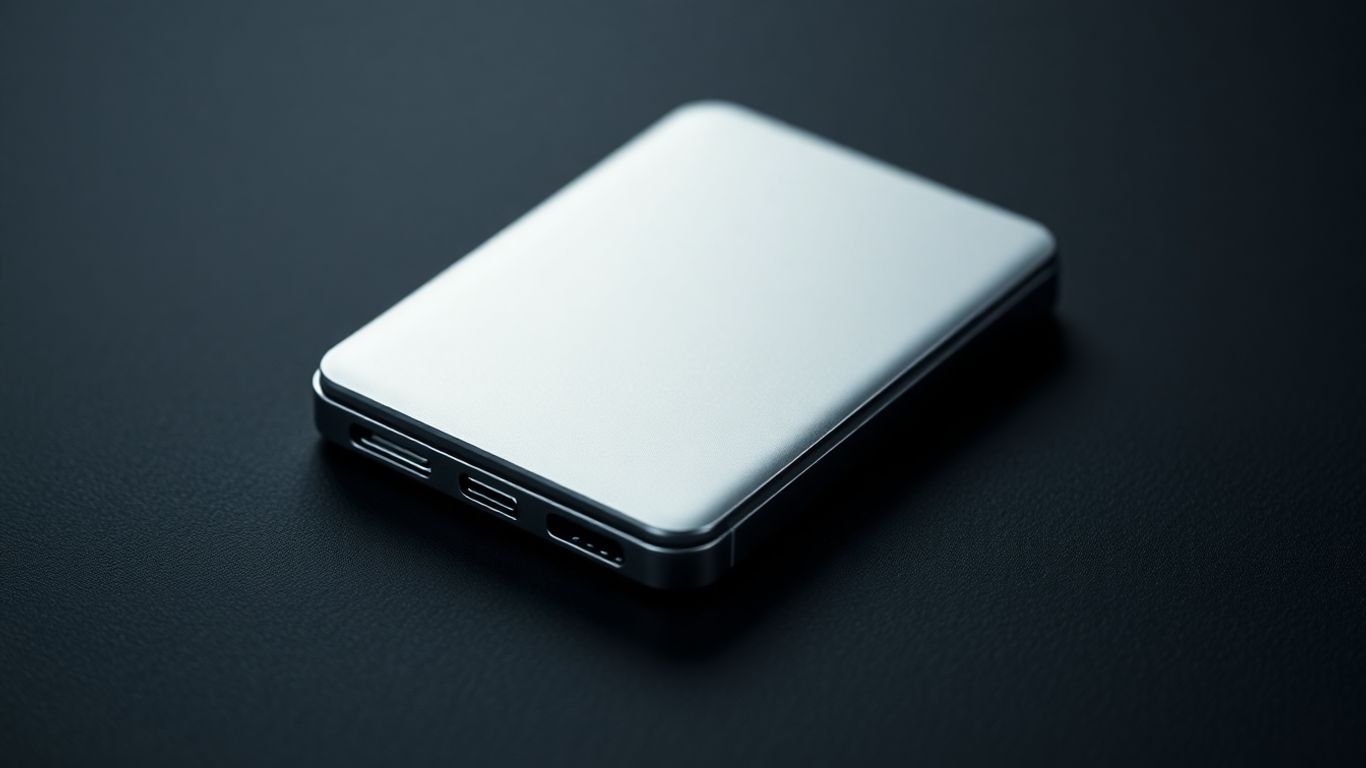
When you're dealing with significant amounts of cryptocurrency, or just want that extra layer of protection, hardware wallets are the way to go. These devices keep your private keys offline, making them immune to online threats like malware and phishing. Think of them as a physical vault for your digital assets.
The Ledger Nano X is a popular choice for good reason. It offers robust security, supporting over 1,500 different cryptocurrencies. What sets it apart is its Bluetooth connectivity, allowing you to manage your assets directly from your mobile device without needing to plug it in constantly. This makes it pretty convenient for on-the-go users who still want top-tier security.
Trezor was one of the first companies to make hardware wallets, and the Model T is their premium offering. It features a color touchscreen, which makes navigating and confirming transactions much simpler compared to devices with just buttons. It also supports a wide array of cryptocurrencies and is known for its open-source approach to security, meaning its code can be reviewed by anyone.
Tangem wallets are a bit different. They look like credit cards and use NFC technology to communicate with your phone. There are no batteries or cables involved, just tap the card to your phone to manage your crypto. The security chip inside is certified to a high level, similar to what's used in passports. It's a really neat, minimalist approach to hardware security.
Hardware wallets are a significant step up in security, but they aren't foolproof. Always buy directly from the manufacturer or an authorized reseller to avoid tampered devices. And never, ever share your recovery phrase with anyone or store it digitally.
Beyond the popular web and mobile options, there are a few other types of crypto wallets that cater to different needs, especially when it comes to security and control. These might not be your everyday go-to for quick trades, but they have their place.
Desktop wallets are applications you install directly onto your computer. They offer a good balance between accessibility and security, giving you more direct control over your private keys compared to web wallets. Think of them as a dedicated app for your crypto on your PC or Mac.
However, it's important to remember that if your computer gets a virus or malware, your desktop wallet could be at risk. Keeping your operating system and antivirus software up-to-date is a must.
Paper wallets are exactly what they sound like: your public and private keys printed out on a piece of paper. This is a form of 'cold storage,' meaning your keys are kept completely offline, making them immune to online hacking attempts. This is generally considered one of the most secure methods for long-term storage.
However, paper wallets are also quite fragile. They can be lost, stolen, damaged by fire or water, or even just fade over time. Plus, using them to make transactions can be a bit clunky, often requiring you to import your private key into a software wallet, which then exposes it online.
Multi-signature, or 'multisig,' wallets require multiple private keys to authorize a transaction. This is a more advanced security feature, often used by businesses or individuals who want to add significant protection against single points of failure or unauthorized access.
Setting up and using multisig wallets can be complex and is typically best suited for users with a solid understanding of cryptocurrency and security protocols. They are often limited to specific cryptocurrencies like Bitcoin.
So, you've looked at the different types of wallets and maybe even narrowed down a few options. That's great! But before you click that 'buy' button or download that app, let's talk about what really matters when picking the best crypto wallet for you. It's not just about which one looks the coolest or has the most coins listed.
This is a big one. What coins do you actually plan on holding or trading? Some wallets are super specialized, like only handling Bitcoin or Ethereum and its related tokens. Others are much broader, supporting dozens or even hundreds of different cryptocurrencies and various blockchain networks. If you're just starting with Bitcoin, a Bitcoin-only wallet might be fine. But if you think you'll want to dabble in altcoins or NFTs later on, you'll need a wallet that can handle that. It's way easier to pick a wallet that supports what you need now and what you might need in the future, rather than having to switch wallets down the line.
Here's a quick look at how some popular wallets stack up:
When it comes to your digital money, security is obviously super important. You don't want to trust your funds to a wallet that hasn't been properly checked out. Look for wallets that have undergone independent security audits. These are like thorough check-ups by outside experts to find any weak spots. Sites like CertiK, Coinspect, or CERtified often provide ratings or reports on wallets. While not every wallet is on these platforms, a wallet that has gone through these checks and has good ratings is generally a safer bet. Also, consider the wallet's own security measures, like two-factor authentication, encryption, and how they handle your private keys.
It's easy to get caught up in the features and the hype, but remember that the primary job of a wallet is to keep your assets safe. If a wallet has a history of security breaches or hasn't been audited, it's probably best to steer clear, no matter how many coins it supports.
Let's be real, crypto can be confusing, especially when you're new. A good wallet shouldn't just hold your crypto; it should also help you understand how to use it safely and effectively. Does the wallet provider offer good customer support? Can you reach them easily if something goes wrong? Do they have helpful guides, FAQs, or tutorials? Some wallets even have built-in learning sections where you can earn crypto by learning about different projects. This kind of support can make a huge difference, particularly if you're not a tech whiz or a seasoned crypto trader. It's about having a safety net and resources to help you along the way.
So, picking the right crypto wallet really boils down to what you plan to do with your digital money. If you're just starting out or want something simple for your phone, wallets like Coinbase Wallet or Trust Wallet are pretty good choices. For those who are really into the decentralized apps and the whole Web3 scene, MetaMask is a solid pick. And if you're holding a good chunk of crypto for the long haul, you can't really go wrong with a hardware wallet like Ledger or Trezor – they offer that extra peace of mind. Remember, the most important thing is to keep your private keys safe, no matter which wallet you end up using. Happy crypto-ing!
Think of a crypto wallet like a digital bank account for your digital money, like Bitcoin or Ethereum. You need it to send, receive, and keep your digital coins safe. It's like having your own special key to access and manage your crypto.
A 'hot' wallet is connected to the internet, like an app on your phone or a website. It's easy to use for quick trades. A 'cold' wallet is offline, like a special USB drive, and is super safe for storing your crypto for a long time, away from online dangers.
It depends on how often you trade and how much security you want. If you trade a lot, a hot wallet might be better. If you're saving for a long time, a cold wallet is a safer bet. Also, think about how easy it is to use and what types of digital money it can hold.
Web wallets, which you access through a browser, can be convenient but might be less secure than other types because they are connected to the internet. It's important to use reputable web wallets and practice good online safety habits.
Hardware wallets are physical devices, like a small metal card or a USB stick, that keep your crypto keys offline. They are considered very secure because they are not connected to the internet, making it extremely difficult for hackers to steal your digital money.
Losing your password or the secret recovery phrase (a list of words that unlocks your wallet) can mean losing access to your crypto forever. Always write down your recovery phrase and store it in a very safe, private place. Some newer wallets have easier ways to recover your account, but it's still crucial to be careful.
